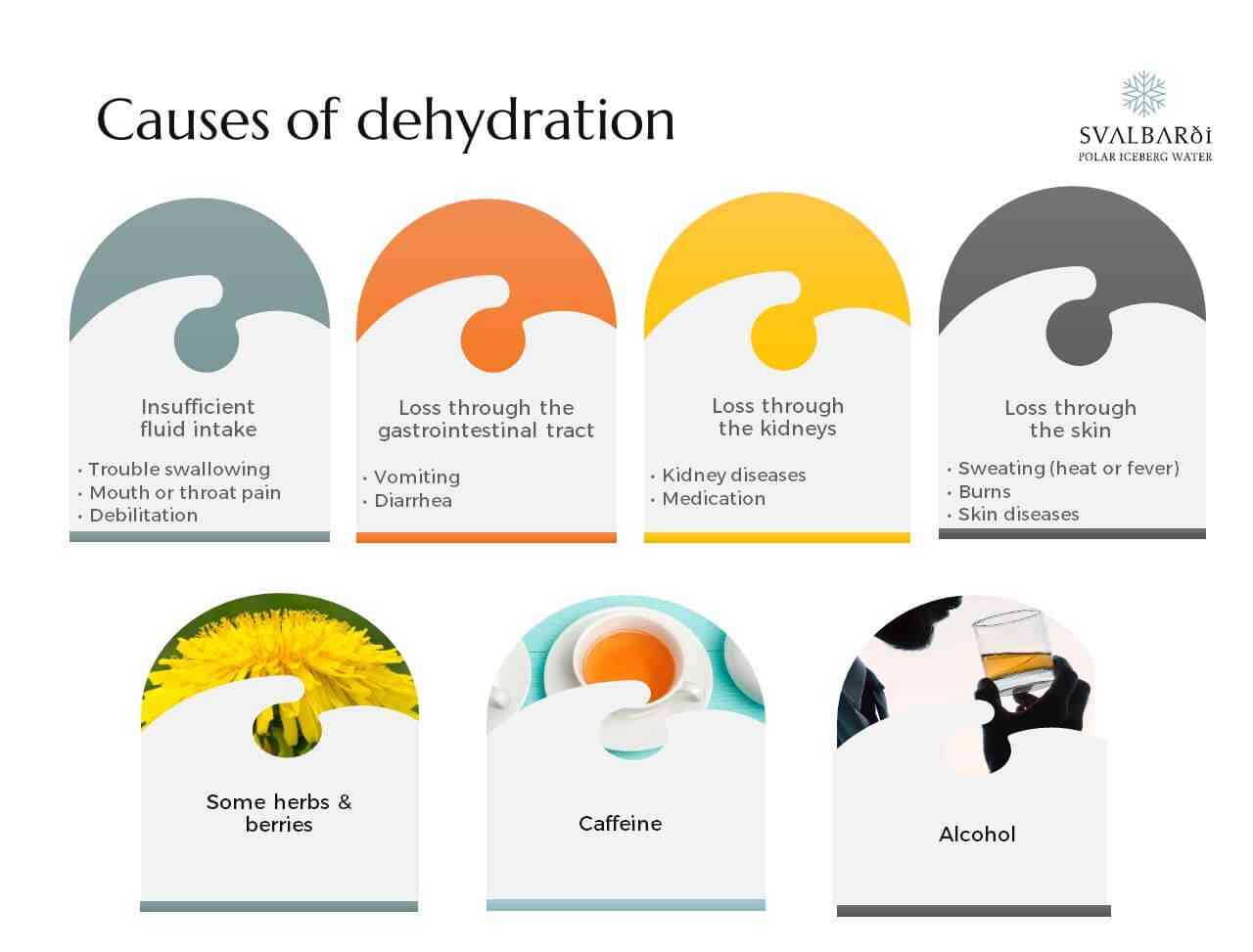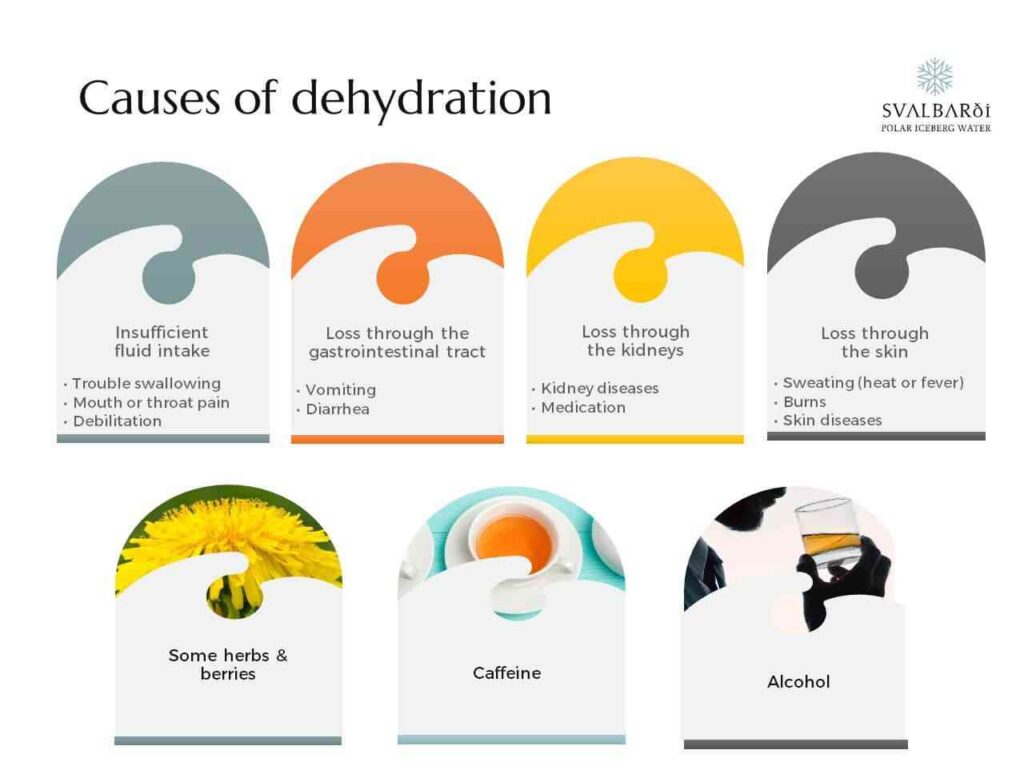Health & Care
Uncovering the Hidden Dangers: Dehydration and Its Surprising Health Risks
Contents
Key Points
- Dehydration occurs when the body loses more fluids than it takes in, leading to insufficient water for normal function.
- Surprising health risks of dehydration include impaired cognitive function, urinary and kidney problems, seizures, and hypovolemic shock.
- Mild dehydration can also affect physical performance, mood, energy levels, and cause headaches.
- Certain populations, such as athletes, seniors, and children, are at an increased risk for dehydration.
- Preventing dehydration requires consistent intake of fluids, particularly water, and recognizing the early signs of fluid loss.
Dehydration is a condition that occurs when there is an inadequate amount of fluid in the body. It might seem like a minor inconvenience—feeling a bit parched on a hot day or after a long workout. However, ample research underlines the potentially alarming health risks associated with chronic or acute dehydration. These risks affect various bodily systems and can have serious repercussions if not quickly addressed.
> READ MORE:
Understanding Dehydration and Its Health Risks
Dehydration happens when the amount of water exiting the body is greater than the amount being consumed. The human body is about 60% water, essential for numerous bodily functions, including maintaining the health of cells, aiding in digestion, facilitating joint movement, and regulating body temperature.
Even mild dehydration can interfere with these functions and more. Beyond the well-known effects like dry mouth and thirst, dehydration can lead to cognitive impairment, which might manifest as confusion, delirium, or reduced alertness. Studies have shown that a lack of adequate hydration can significantly affect concentration, memory, and mood.

Moreover, persistent under-consumption of fluids can strain the kidneys, potentially leading to the development of kidney stones or urinary tract infections. In more severe cases, dehydration can induce seizures due to an imbalance of electrolytes—minerals like sodium and potassium that transmit electrical signals in the body.
Perhaps the most severe risk of dehydration is hypovolemic shock, a life-threatening condition where low blood volume causes a drop in blood pressure and a decrease in the amount of oxygen in your body.
Physical Performance and Dehydration
Athletes and those engaging in physical labor or exercise must be wary of the impact of dehydration on their performance. Even mild dehydration can impair endurance, decrease strength, cause fatigue, and lead to overheating. Adequate hydration is essential for peak physical performance, just as it is for cognitive function.
At-Risk Populations
Certain individuals may be at greater risk for dehydration. Older adults naturally have a lower volume of water in their bodies and often may not feel thirsty until they are already dehydrated. Children, with their higher energy needs and often inadequate drinking habits, are also a vulnerable group.

Those with chronic illnesses, such as diabetes, are more prone to fluid loss and need to monitor their hydration levels carefully. Athletes, especially those performing in hot and humid conditions, are another group that must be vigilant about their fluid intake.
Preventing Dehydration
To prevent dehydration, it is important to drink fluids regularly throughout the day. While water is the best hydrator, other beverages and foods with high water content, such as fruits and vegetables, can also contribute to a person’s overall fluid intake. Awareness of the signs of dehydration, such as reduced urine output, dry skin, dizziness, and rapid heartbeat, is essential for quick intervention.
For those especially at risk or during high-risk activities like endurance sports, rehydration solutions with a proper balance of electrolytes can be particularly effective in maintaining proper hydration levels.
Conclusion
Uncovering the hidden dangers of dehydration brings to light the significance of staying hydrated for maintaining overall health. The risks engendered by dehydration are far-reaching, affecting both the physical and mental faculties. As evidence continues to amass on the detriments of inadequate fluid intake, it emphasizes the need for education and awareness on the critical nature of hydration as a cornerstone of wellness.
In a world that is ever-moving and often prioritizes productivity over health, understanding the risks of dehydration and taking proactive steps to ensure adequate hydration could be the key to not only sustaining performance but improving quality of life. Regular water intake and close attention to our body’s signals are simple, effective ways to avoid the surprising health risks associated with dehydration.

